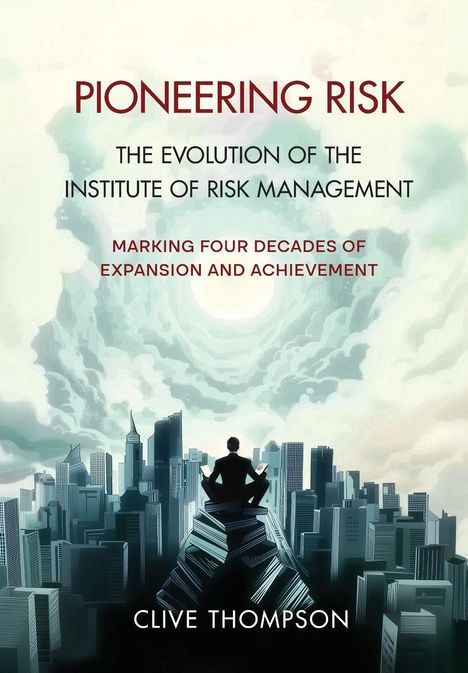Thompson: Pioneering Risk, Gebunden
Pioneering Risk
- The Evolution of the Institute of Risk Management
(soweit verfügbar beim Lieferanten)
- Verlag:
- Institute of Risk Management, 09/2025
- Einband:
- Gebunden
- Sprache:
- Englisch
- ISBN-13:
- 9781068215360
- Artikelnummer:
- 12392461
- Umfang:
- 172 Seiten
- Gewicht:
- 490 g
- Maße:
- 229 x 152 mm
- Stärke:
- 14 mm
- Erscheinungstermin:
- 16.9.2025
- Hinweis
-
Achtung: Artikel ist nicht in deutscher Sprache!
Klappentext
The Institute of Risk Management (IRM) was formally incorporated on the 11th of April 1986. This book reviews the twenty years. before then as well as the forty years following - AND ALL PROCEEDS FROM THE BOOK WILL GO TO THE IRM EDUCATIONAL FOUNDATION TO BENEFIT GOOD CAUSES.
It describes the development of the practice of risk management and how the IRM came about, identifying the individuals who had the most to do with guiding IRM's development within AIRMIC (or AIMIC as it then was).
It describes the changes in the way risk management is practiced, then and now and how many of these changes were pioneered, championed or more widely communicated by members of the Institute
The book benefits from having access to the personal file of the late Dennis Farthing, one of, if not the, driving force in the formation of the Institute and who was known to the author as well as internal correspondence from the time and interviews with some of those intimately involved in its early days.
Others identified in the book include Tony Benson, Norman Bennet, Ian Drewer, Simon Hackett, Alan Louth, David Ovenden, Jim Phillips, Bill Sennet, and Terry Sparkes who were practicing risk managers who represented a huge swathe of British industry from manufacturing through pharmaceuticals to food and drink.
It also identifies and describes others involved from practitioners and academics through to finance and technical experts who helped build and disseminate the body of knowledge. It pays tribute to some who have sadly passed away, such as Emma Cundiff who contributed to the revamp of the examinations or Brian Pountney who devoted himself to re-building the finances of IRM from near bankruptcy.
The book develops chronologically with each period describing the events, how risk management was practiced, the governance of the Institute and its finances. The reader will see how the Institute went through some challenging times, including that close call with bankruptcy at the turn of the century.
By focusing on the challenges, it provides a case study in recovery and resilience including the role played by Mark Butterworth in the crisis and how the IRM developed new teaching and qualifications under the guidance of Steve Fowler.
It describes the global expansion and the early ambition to become a 'Chartered' body. It examines governance tensions that prompted further leadership changes and financial challenges which prompted a strategic shift towards targeted events and a focus on examinations in order to sustain operations.
The Institute's transition into a more financially stable organisation is reflected in its takeover of the Institute of Operational Risk and the subsequent development of their qualifications. The transition to a more effective governance regime is also described with the appointment of an independent chair.
The book offers thoughts for the future with the development of the OfQual regulated exams, opening new offices overseas, and developing new streams of revenue for future growth


